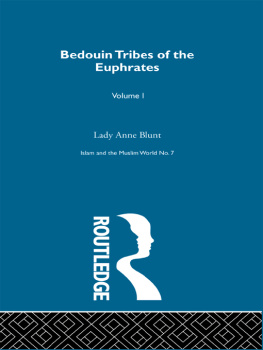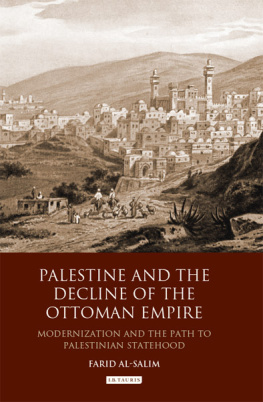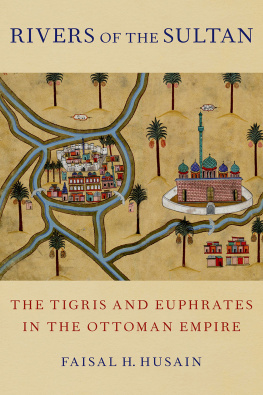MARSH DWELLERS OF THE EUPHRATES DELTA
LONDON SCHOOL OF ECONOMICS MONOGRAPHS ON SOCIAL ANTHROPOLOGY
Managing Editor: Charles Stafford
The Monographs on Social Anthropology were established in 1940 and aim to publish results of modern anthropological research of primary interest to specialists.
The continuation of the series was made possible by a grant in aid from the Wenner-Gren Foundation for Anthropological Research, and more recently by a further grant from the Governors of the London School of Economics and Political Science. Income from sales is returned to a revolving fund to assist further publications.
The Monographs are under the direction of an Editorial Board associated with the Department of Anthropology of the London School of Economics and Political Science.
MARSH DWELLERS OF THE EUPHRATES DELTA
S.M.SALIM
LONDON SCHOOL OF ECONOMICS MONOGRAPHS ON SOCIAL ANTHROPOLOGY
Volume 23
First published 2004 by Berg Publishers
Published 2020 by Routledge
2 Park Square, Milton Park, Abingdon, Oxon OX14 4RN
605 Third Avenue, New York, NY 10017
Routledge is an imprint of the Taylor & Francis Group, an informa business
S. M. Salim 2004
All rights reserved. No part of this book may be reprinted or reproduced or utilised in any form or by any electronic, mechanical, or other means, now known or hereafter invented, including photocopying and recording, or in any information storage or retrieval system, without permission in writing from the publishers.
Notice:
Product or corporate names may be trademarks or registered trademarks, and are used only for identification and explanation without intent to infringe.
ISBN 13: 978-1-8452-0003-9 (hbk)
DR Salim's detailed and intimate study of a marsh-dwelling community of bedouin descent on the Lower Euphrates has strong claims on the attention of both social anthropologists and students of social conditions and change in the Middle East.
In the first place it provides one of the very few systematic and carefully documented field studies of the values and social rules whereby the intense solidarity of the patrilineal and largely endogamous kin groups of bedouin society are sustained. Dr Salim shows that these values and obligations have been substantially maintained by the Ben: Isad both in their initial adaptation to a new mode of life as sedentary reed-gatherers in a mosquito infested marsh refuge, and more recently under the stress of new economic temptations from without. Collective insistence at the level of both lineage and clan on compensation for major offences and acceptance by individuals in the offending group that they must all contribute, continually reaffirm the unity of the group in the recurrent settlement of disputes over women and land as well as physical injury and homicide. The continuing economic power of a man over his wives and sons and the authority of a senior over a junior patrikinsman, which are reinforced by endogamous marriage, sustain the sense of joint responsibility within the lineage and inhibit political and economic divergence on the part of individuals.
But this study also shows that as between clans and lineages in Marsh Arab society as a whole, there have been great changes over the past generation. It analyses the processes whereby a once strongly stratified and authoritarian society has, in the course of increasingly effective external control and the introduction of new economic incentives, become a more open field of competition for status and prestige. The shaikh, who once had prescriptive right to dominate politically and economically both his own chiefly clan and through it the rest of the tribe, is gone. The slaves have been freed of economic disabilities and iron-workers may no longer be openly despised. A few of the Beni Isad have succeeded in taking advantage of new opportunities with the growth of external trade to become comparatively wealthy shopkeepers, moneylenders and exporters. But those who have taken up new and more lucrative occupations have great difficulty in securing recognition as notables, the respected status that is ascribed to the conservative heads of united lineages. These notables scorn the pursuit of personal gain and restrict their economic activities to the ill-rewarded mat weaving necessary for a bare livelihood. For nothing in the marshes has been acceptable as replacing the old prestige of camel breeding. Fishing and dairying, both of which, as despised immigrants have shown, could be materially rewarding, are rejected as unworthy.
But although the old bedouin values are still asserted in an attempt to stem the tide of commerce and external influence, the conflict between new and old values and its repercussions on the solidarity of lineages and the community as a whole are increasing. In 1953, when Dr Salim lived and worked there, ech-Chibayish presented very clearly, in its exceptional and harsh environment, a crucial phase in those processes of technical, economic and social change that are inexorably transforming village communities in the Arab world. His pertinacity in carrying through a yearlong study under such difficult physical conditions and his success in establishing such close rapport with opposed factions, was doubtless due in considerable measure to a deep interest in the life of the Marsh Dwellers which goes back to his youth, for he was born in Amara, a town on the edge of the Tigris marshes. When he began his anthropological studies in London in 1950 he looked forward to the possibility of undertaking field research among them. Through this book we are enabled to share in his satisfaction at having carried out so successfully what proved to be an arduous and complex task. The skill with which he has analysed the changing structure of this marsh village and traced the sources of old and new attitudes is a testimony of the good use to which he has put his anthropological training. It is also to be hoped that it will encourage further and equally rewarding field research on other village communities in Iraq.
DARYLL FORDE
University College London
February 1958
FOR the invaluable help and guidance offered to me during my studies and in the writing of this book, which is based on my doctoral thesis, I should like to express my most sincere thanks and profound gratitude to my teachers, Professor Daryll Forde and Dr Mary Douglas, of University College, London, without whose assistance it could not have been completed.
I am deeply indebted to many friends in ech-Chibayish, officials and villagers, to all of whom I express my wannest thanks. My gratitude is particularly due to the late Abdil-Hadi Ahl Khayun, the irkal of Ahl ish-Shaikh clan, who, despite ill-health and heavy responsibilities, sponsored my work and by effective support and valuable information did everything within his power to help me.
To Tariq Ahl Khayn I owe more than to anyone else in ech-Chibayish for his cordial and constant help. He was my chief and most valuable informant and it is to his active co-operation and deep understanding of tribal life that I owe the greater part of the knowledge that I gained in ech-Chibayish.
S. M. S.
London








